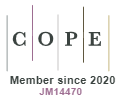Effects of an early motor intervention program for the development of infants in residential shelters center
DOI:
https://doi.org/10.5585/conssaude.v15n3.6257Keywords:
Physiotherapy, Infant Development, Environment.Abstract
Aim: To assess the effects of an early motor intervention program in the motor development of babies in Porto Alegre shelters, between 1 and 14 months. Methods: Randomized clinical trial with 13 infants in the interventional group (IG) and 12 infants in the control group (CG). Alberta Infant Motor Scale (AIMS) assessed the babies and the GI held two months of intervention (to chase object, manipulate toys and postural control).Results: Not different from the pre motor development and post-intervention in the CG. GI had an increase in the percentage of normal and reduced motor delay. In the comparison between the groups, there was significance in the pre intervention, since the GI infants were more backward. In the post intervention, the difference did not remain significant due to the marked improvement in the GI. The GI also obtained significant results in the positions prone, supine, sedestation, orthostatic. The GC obtained significance only in orthostatic, and can be justified by the highest average age in this group. Conclusion: IG Babies improved their motor development rating.Downloads
Downloads
Published
How to Cite
Issue
Section
License
Copyright (c) 2016 ConScientiae Saúde

This work is licensed under a Creative Commons Attribution-NonCommercial-ShareAlike 4.0 International License.
Autores que publicam nesta revista concordam com os seguintes termos:
O(s) autor(es) autoriza(m) a publicação do texto na revista;
O(s) autor(es) garantem que a contribuição é original e inédita e que não está em processo de avaliação em outra(s) revista(s);
A revista não se responsabiliza pelas opiniões, idéias e conceitos emitidos nos textos, por serem de inteira responsabilidade de seu(s) autor(es);
É reservado aos editores o direito de proceder a ajustes textuais e de adequação às normas da publicação;
Autores mantém os direitos autorais e concedem à revista o direito de primeira publicação, com o trabalho simultaneamente licenciado sob uma Licença Creative Commons Atribuição-NãoComercial-CompartilhaIgual 4.0 Internacional;
Autores têm permissão e são estimulados a publicar e distribuir seu trabalho online (ex.: em repositórios institucionais ou na sua página pessoal) já que isso pode gerar alterações produtivas, bem como aumentar o impacto e a citação do trabalho publicado;
Em virtude de aparecerem nesta revista de acesso público, os artigos são de uso gratuito, com atribuições próprias, em aplicações educacionais e não-comerciais.


